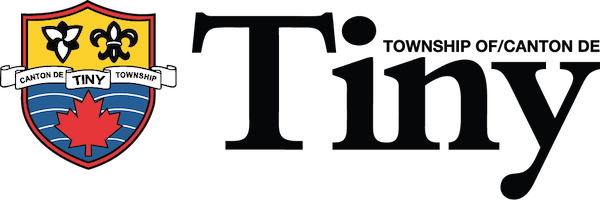Pollinators like bees, butterflies, birds, bats, beetles, and other beneficial insects play a crucial role in maintaining healthy ecosystems and supporting our food systems. They help fertilize crops, improve soil health, promote water retention, and support carbon-storing native plants. By protecting pollinators, we help build resilience against climate change and ensure long-term sustainability for our community.

In 2025, the Township of Tiny proudly renewed its Bee City Canada designation—a national recognition of our commitment to creating a more pollinator-friendly community through habitat enhancement, education, and celebration.
A Community-Wide Effort
Becoming a Bee City means working together. Residents, volunteers, schools, farmers, and local businesses all play a vital role in protecting pollinators.
This webpage is your guide to learning more about Tiny’s pollinator initiatives and how you can get involved!
Pollinators and Community Action in Tiny
Threats to Pollinators
Pollinators face serious threats from habitat loss, pesticides, climate change, and invasive species. These challenges reduce food and nesting sites, endangering biodiversity and food security. Protecting pollinators requires understanding and addressing these key pressures.
How You Can Make a Difference
Pollinators are essential to the health of our food systems, ecosystems, and local biodiversity. Yet they face growing challenges from habitat loss, pesticide use, climate change, and invasive species. Fortunately, there are many ways you can take action to help protect and support pollinators—whether you have a backyard, balcony, or community space.
Every effort counts. Here’s how you can get involved and make a difference in the Township of Tiny:
Native Plants in the Township of Tiny
Native plants are essential for supporting local pollinators. Unlike non-native species, they provide the right food and habitat, boosting biodiversity and ecosystem health. Planting native species also reduces the need for fertilizers, pesticides, and water, helping restore balance to our environment.
